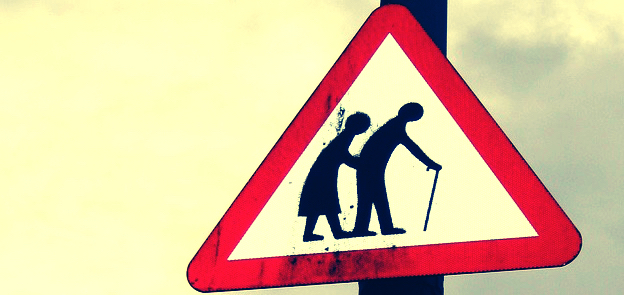
The nuclear family was created when society chose to move their elderly parents away from the family and into care homes. Agent151 argues that the nuclear chickens are now coming home to roost as we face stark choices about how to fund care for older people.
We have all known for ages that when the post-war baby boomers reach their twilight years it will be a major problem for the social care sector. The baby boomers’ sky-high expectations concerning living standards and overexposure to a popular culture of sex, drugs and rock and roll make one suspect they will be difficult customers in any case, compared to past generations; but the main issues are quite simply that there are loads of them and they are going to need care for a ruddy long time.
Attrition rates — the current euphemism for how quickly they die — have fallen thanks to whizzy medical technology. In the old days people were dying of heart attacks all the time, but nowadays they get a stent or a transplant or a pacemaker and, part human, part machine, whirr on well into their eighties; which is where lack of mobility and dementia make them expensive to care for. So, the effect of the population boom on social care costs is boosted by the effect of technology.
The baby boomers took to putting their elderly and needy relatives into institutions instead of caring for them at home, thereby inventing the nuclear family. As an incredibly prosperous generation, they could afford it. Now the nuclear chickens are coming home to roost: the children spawned and educated in those nuclear families expect to put their own aged parents into those same institutions. The baby boomers will be getting a taste of their own unpleasant medicine.
Or at least, they would be if it were affordable. However, it is not. This is the case for a number of reasons: less economic growth, higher standard of living expectations, the continued pruning of public sector spending to manage the budget deficit, and a widespread unwillingness on the part of the next generation to shoulder the huge tax bill.
What shall we do, then, with this ticking time bomb of decrepitude?
Integration
The option of leaving social care where it is will result in severe financial pressure on councils, which will have to be funded by cuts to other services and council tax increases. The council tax social care precept is not enough on its own. This route will lead to referendums for big council tax increases, which will be voted down, and ultimately government intervention as councils rebel and abandon trying to balance their books.
The integration of social care with the health service has been touted as a solution. It is suggested that the efficiencies gained will pay for the increasing cost of care. Is this right? Well, the integration can only work one way, which is moving some or all of social care into health.
Local authorities are efficient and have been ruthlessly good at rationing social care for the elderly, whereas the NHS has a poor record on both counts. Making efficiency gains from the transfer may, frankly, be too big an ask for an already straining NHS. The likely effect will be an increase in costs. The twist with this solution, however, is that the pressure will be funded stoically by the taxpayer as just another element of the NHS overspend, and that may be an attractive solution politically.
Rations
Another, more marginal, opportunity is to ration even more stringently. Old age will become even less well supported — and let’s face it, the urine-soaked carpets of our care homes are a symbol of just how poorly supported it is already. In addition, there will be an even tougher means-tested charging regime: the state will have to learn to suck the money away from the elderly more effectively than their greedy relatives.
Early intervention is also on the list of solutions, and whilst this is definitely something we should be deploying for today’s younger generations, for the baby boomers it is too late: the consequences of a lifetime of smoking and drinking and eating chips on the couch cannot be avoided now.
So, there is no silver bullet. Out of necessity, the solution will be cobbled together from all of the above, and it will not be pleasant. Perhaps the most important thing that needs to happen, and which is sadly the most unlikely, is the rebalancing of responsibility for care between the family and the state. The nuclear family could be replaced by the extended family, and caring for our elderly could become something that is highly valued, as it is in many other cultures around the world. Then no-one would need to worry about chickens any more.
Agent151 is a senior local authority finance director.










